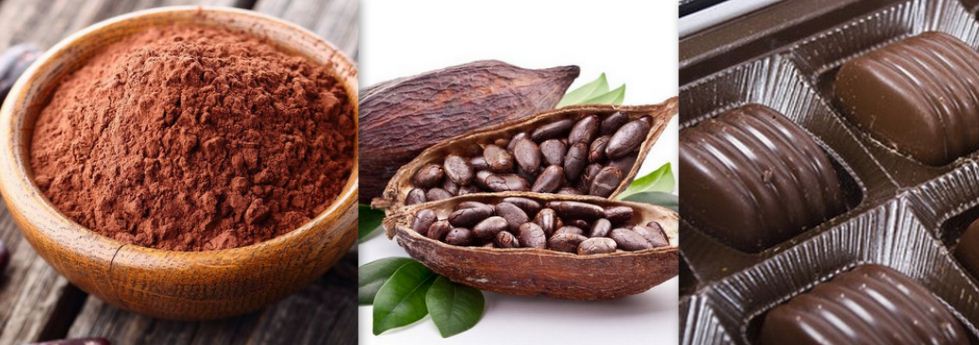About Nutrition Facts and Health Benefits of Sorghum

Studies show that sorghum is rich in numerous vitamins and minerals which are good for health as they provide the body with the adequate energy needed and other necessary benefits to improve health and lifestyle.
Listed here are 9 health benefits of Sorghum and its effects in your body:
1. Good For The Digestive System
Sorghum one of the major cereal grain foods that are rich in dietary fiber which makes it is good for the digestive system.
The amount of fiber content in this food helps in the proper digestion of food when consumed moderately and help also to reduce the chances of digestive tract disorder and other problems that might cause constipation, bloating and cramping.
2. Prevents Coeliac Diseases
Sorghum is considered to be gluten-free, which simply implies that it is good for those who have Coeliac diseases as they can include it in their diet without any fear of effects or allergies.
This celiac disease is an abdominal pain or disorders that happen as a result of eating foods that contain gluten which affects the small intestine's lining when the immune system reacts to the effect.
Since researches have proven that this whole-grain cereal, sorghum are gluten-free, sticking to it as a daily diet can be the simplest way to prevent these abdominal relatedillness known as celiac disease.
3. Good For Diabetic Patients
This is a good food crop for diabetic patients as it helps in the controlling of the blood sugar; one of the polyphenols in Sorghum is tannin which helps in the regulation of the level of both insulin and glucose in the body.
Tannin does not also allow the absorption of starch by the body thereby reducing the chances of increment of glucose in the blood.
4. Improves Bone Health
It contains minerals that are good for the bones such as calcium, potassium, and magnesium; these minerals help in the development of bone tissues.
These essential minerals are also important as they help in the prevention of bone-related diseases such as rickets, osteosarcoma and more.
Just as important as the other, calcium is very necessary for life because it helps in building healthy bones and blood clotting.
Additionally, strengthens the bones and helps the muscle, nerves, and cells of the body to work properly. Both minerals are needed for numerous functions of the body majorly the ones listed above.
5. Prevents Anemia
In Sorghum, essential elements that help to prevent anemia are present such as iron, as well as other minerals that help in the absorption of iron in the body which includes magnesium and copper.
These minerals help to develop the red blood cells which in turn promote adequate blood circulation in the body which is beneficial for the body.
Anemia is a known iron deficiency which can cause fatigue and other difficulties to human health. Therefore, the best way to prevent this condition is by eating iron-rich food such as sorghum.
A well-balanced diet must not fail to include some amount of minerals such as magnesium, copper, and iron or at least one of them in a complete diet.
6. Helps in Proper Functioning Of The Brain
The mineral Phosphorus also helps in the proper functioning of the brain which seems to be the major one among many other benefits it adds to the body.
Phosphorus is an essential mineral that helps to improve cognitive growth and development as well as memory and general functioning of the brain.
Phosphorus-rich foods such as whole grains like sorghum help to prevent certain deficiencies caused by lack of this mineral in the body which can cause some brain malfunctions such as Alzheimer's, dementia or related others.
7. Repairs Body Tissues and Cells
Sorghum contains unique properties that help in repairs and maintenance of the body cells and tissues as well. It serves as a good source of vitamins and minerals that are needed for daily metabolism and repair of body cells and tissues.
8. Slow Down Ageing Effects
Sorghum contains phytochemicals compounds which act as an antioxidant and provide the body with nutrients which slow down aging as well as help in minimizing the chances of heart diseases.
9. Serves As a Weight Loss Diet
Ideally, foods rich in fiber and other nutrients as it is contained in sorghum help to keep one full all day long, which can help to limit food cravings.
Whole grains are one of the fiber-rich foods that are required when one is trying to lose weight in order to burn off fats from the body. It is possible to lose weight rapidly by including some portion of sorghum to your daily meal.
Nutritional Values of Sorghum
Sorghum contains nutrients that makes it good for consumption, these nutrients include, magnesium, phosphorus, manganese, carbohydrates, protein, calcium, fat, fiber, vitamins B3, vitamin B6, potassium, iron, and more.
The presence of manganese helps the thyroid gland to function effectively.
Sorghum Vs Wheat
Most times, people tend to compare sorghum to wheat because of their related features though both of them are whole-grain cereal foods. Their grasses are majorly cultivated for their seeds.
Both wheat and sorghum are cholesterol-free, rich in essential vitamins, minerals, carbohydrates, protein and other nutrients that add values to human health.
Sorghum Black Treacle or Molasses
Sorghum molasses is a black viscous liquid in the form of syrup that is refined or extracted from sorghum.
This syrup can be made from sorghum by simply cutting off up to six inches of the canes from the soil then wash very well.
Boil in a little quantity of water crush maybe with cider press or any other apparatus. Then sieve the juice and pour in a neat container then allow it for some hours to simmer till the color changes from green to brown in a gradual process.
At this point, it can be preserved inside is ready to use just as other molasses. This sorghum syrup has as many health benefits as the whole grain.
Side Effects
Sorghum is nutritional, but can as well be poisonous for livestock especially when it is grazed in drought as it can produce cyanide or prussic acid, and this toxicity is contained in the stem and leaves but not in the grain.
Local Value
In Nigeria and some other African countries, sorghum is used for traditional medicinal purposes as its leaf is used in the treatment of some ailments such as anemia, leukemia, inflammation and much more.
This whole-grain cereal can be ground into flour, simply called sorghum flour which is also useful in its form and beneficial just as the whole grain is to human health.
Sorghum flour can be used for cooking some food products such as porridge, sauces, risotto-like dish, salad sauce, and other African dishes.
It is also used in gluten-free baking to add superb flavors to baked foods like cookies, bread, pasta, cakes, and other recipes.
Sorghum also is known as guinea corn in West Africa is a nutritive food crop commonly grown in the Northern parts of Nigeria.
Though Millet and Sorghum are most time mistook as one they are quite different in both sizes and colors.
And while millet mostly serves as a food crop, sorghum is widely used as food crops (cereals) as well as a livestock feed, and in industrials is used in the production of alcoholic beverages or sorghum molasses.
Summary:
Aside from the minerals, it contains phenolic and high anti-oxidant properties which are all beneficial to the health of man.
There are numerous health benefits attached to the intake of this cereal food (whole grain) that support the health and total wellbeing of man.
Some of these major health benefits include, but not limited to enhancing the digestive system, prevents coeliac diseases, good for diabetic patients, improves bone health, prevents anemia, helps in the proper functioning of the brain, repairs body tissues and cells,




